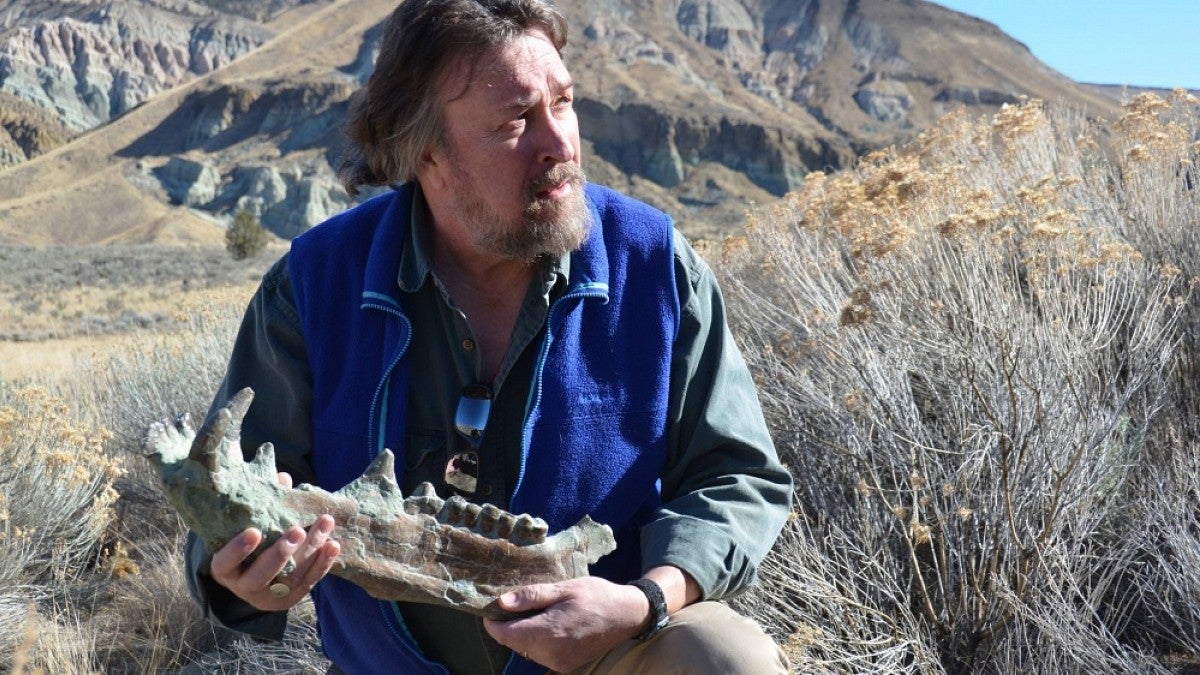Paleontologist Ted Fremd has had five different fossil species named after him — quite an honor in the world of fossil research — but it’s tough to top the honor he received recently from the Society of Vertebrate Paleontology.
At its annual awards ceremony, held Aug. 26 in Calgary, Canada, the organization presented Fremd with its prestigious Morris F. Skinner Award, recognizing Fremd’s outstanding contributions to scientific knowledge through the making of important collections of fossil vertebrates.
Fremd, a researcher with the Museum of Natural and Cultural History and the Department of Earth Sciences, served as the first chief of paleontology at Oregon’s John Day Fossil Beds National Monument, where he established the Thomas Condon Paleontology Center in 2004.
Taking his post at the newly created monument in 1984, “Ted was given a collection of 120 fossils, a 10 square-foot laboratory and approximately 1,000 square miles of fossil-bearing Eastern Oregon to explore,” said Scott Foss, senior paleontologist with the U.S. Department of the Interior. “Thirty years later the paleontology collections at the John Day Fossil Beds exceed 50,000 specimens, each of which is rigorously referenced with stratigraphic and geographic information.”
The only paleontologist ever to serve as a regional science advisor to the National Park Service, Fremd helped define the standards and practices for the collection of vertebrate fossils on public lands, according to senior paleontologist Vincent Santucci.
“Ted has made a career of protecting fossils uncovered on public lands, both by directly working on those lands and through facilitating other researchers’ access to those lands,” said Nick Famoso, a UO alumnus and the current chief of paleontology at John Day Fossil Beds. “He has truly embodied the spirit of Morris Skinner.”
Morris Skinner, an accomplished fossil collector and longtime curator at the American Museum of Natural History, is best known for collecting, cataloging and researching that institution’s Frick Collection of fossil mammals and for championing a new generation of scholarship on North America’s fossil heritage.
For the 2017 award, the Society of Vertebrate Paleontology considered contenders from around the world, including nominees from Australia, China, Germany and Japan.
“Ted has contributed mightily to the preservation and stewardship of Oregon’s deep history,” said Jon Erlandson, executive director at the Museum of Natural and Cultural History. “The Skinner award salutes his substantial role in facilitating ongoing study of Oregon’s rich fossil record. I proudly congratulate him on behalf of the entire museum.”
—By Kristin Strommer, Museum of Natural and Cultural History


